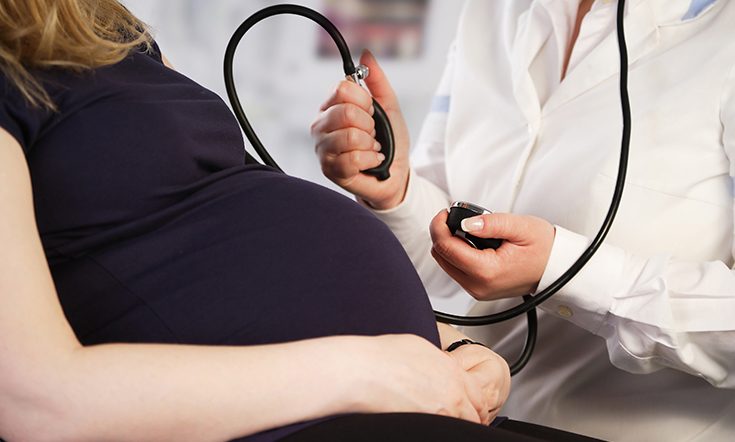

Pre-eclampsia is a relatively, common but very dangerous condition that occurs in some pregnancies. It occurs in around one percent of all pregnancies and if undetected and untreated it can result in death for mothers and their babies. Fortunately, doctors are always on the look out for this condition so it rarely progresses to a stage where it is life-threatening.
Doctors look for protein in the urine, elevated blood pressure and swelling of the face and hands predominantly. Up until now there has been no way to accurately predict your chances of developing the condition, although there are certain risk factors.
Risk Factors and Pre-eclampsia
Risk factors include being pregnant for the first time, pre-existing high blood pressure or vascular disease, a family history of pre-eclampsia, women with diabetes, or a woman carrying more than one baby. However, it’s important to note that women with these risk factors do not always go on to develop the condition, and you can have none of these risk factors and still develop pre-eclampsia.
A New Test to Predict Your Chances of Developing Pre-Eclampsia
A new blood test has been developed that measures certain proteins in the blood. These proteins are released from the placenta in high levels, in women who go on to develop pre-eclampsia. By measuring the levels of these particular proteins they can more accurately determine your likelihood of developing the condition. High levels of the proteins indicate a higher risk, lower levels means you are less at risk.
How Will It Help You
One of the biggest issues with pre-eclampsia is how quickly the condition can develop. You can be enjoying a completely health pregnancy without any complications and be unaware that you are developing the condition. In particular, high blood pressure can have no, or very few symptoms. This ground-breaking test will allow for your care-provider to monitor you closely, and initiate treatment early, if necessary.
Treatment of Pre-Eclampsia
The only cure for pre-eclampsia is to give birth. It is only when the pregnancy ends that the risk to the mother and baby is mitigated. Unfortunately, some women develop pre-eclampsia early in their pregnancy so face a high-risk premature birth. This test will mean that doctors will be prepared for this possible outcome and can start taking care of you and your baby with this in mind.
The test has been highly successful so far and as a result there are plans to introduce it as standard clinical practise, which will mean better outcomes for those who are truly at risk, and will also avoid unnecessary interventions and hospitalisation for women who are low risk.























